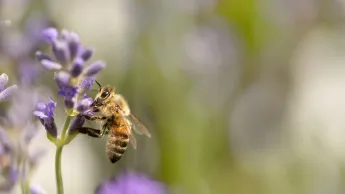The incredible diversity of bees and why they are disappearing
- Kirsten Traynor
- Comment

VIRTUAL COFFEE BREAK (recording)
We have an incredible diversity of bees worldwide, with an estimated 25,000 different species, showcasing the vast variety and richness of this essential pollinator group. However, in the Anthropocene, many bee populations are rapidly declining, and we are losing this vital diversity before we've even had the chance to thoroughly document and understand baseline populations. Numerous interrelated factors contribute to this alarming decline, including globalization, agricultural intensification, the accelerating impacts of climate change, and widespread habitat loss, all of which are putting immense pressure on bee species across the globe.
While for most people, the word bee conjures up the social living honey bee, the vast majority of bee species are solitary. The females emerge in spring or summer and must mate, build their nests, provision these nests with protein-rich pollen, and then lay an egg on top of those provisions, all while avoiding predators and parasites. Through their pollination efforts, bees and other pollinators provide us with a plethora of important crops and help ensure the continuation of our plant biodiversity. Yet these hard-working pollinators that feed us are often starving themselves, due to changes in land-use. We will discuss small changes we can make in our own backyards and balconies to help make the search for nutrition, nest and nesting materials easier for our bees, helping them thrive.
Our Speaker
Reading a Hive - Kirsten Traynor
A talk by Kirsten Traynor at the 2021 National Honey Show entitled “Reading a Hive”. The hardest thing to learn as a beekeeper is how to read a hive. This comes through experience, repetition and careful observation. Gain an insight into the natural structure of a hive and learn how to manage the bees to achieve the goals you have set.
